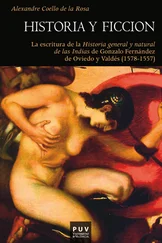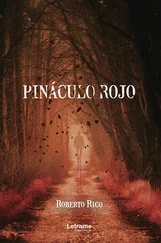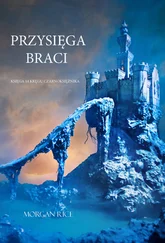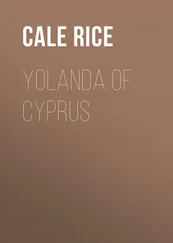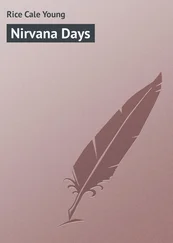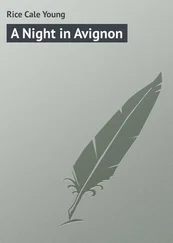Cale Rice - Porzia
Здесь есть возможность читать онлайн «Cale Rice - Porzia» — ознакомительный отрывок электронной книги совершенно бесплатно, а после прочтения отрывка купить полную версию. В некоторых случаях можно слушать аудио, скачать через торрент в формате fb2 и присутствует краткое содержание. ISBN: , Жанр: foreign_prose, foreign_dramaturgy, на английском языке. Описание произведения, (предисловие) а так же отзывы посетителей доступны на портале библиотеки ЛибКат.
- Название:Porzia
- Автор:
- Жанр:
- Год:неизвестен
- ISBN:http://www.gutenberg.org/ebooks/34196
- Рейтинг книги:3 / 5. Голосов: 1
-
Избранное:Добавить в избранное
- Отзывы:
-
Ваша оценка:
- 60
- 1
- 2
- 3
- 4
- 5
Porzia: краткое содержание, описание и аннотация
Предлагаем к чтению аннотацию, описание, краткое содержание или предисловие (зависит от того, что написал сам автор книги «Porzia»). Если вы не нашли необходимую информацию о книге — напишите в комментариях, мы постараемся отыскать её.
Porzia — читать онлайн ознакомительный отрывок
Ниже представлен текст книги, разбитый по страницам. Система сохранения места последней прочитанной страницы, позволяет с удобством читать онлайн бесплатно книгу «Porzia», без необходимости каждый раз заново искать на чём Вы остановились. Поставьте закладку, и сможете в любой момент перейти на страницу, на которой закончили чтение.
Интервал:
Закладка:
Cale Young Rice
Porzia
PREFACE
Some years ago while writing "A Night In Avignon" the thought came to me of framing two other plays that should deal respectively with the Renaissance spirit at its height and decadence, as that play had dealt with it at its beginning. For the great human upheaval that came intoxicatingly to Italy during the fourteenth, fifteenth and sixteenth centuries is so full of æsthetic contrast and glamor as to be peculiarly suitable for the doubly exacting purposes of poetic drama.
"Giorgione," the second of these plays to be written, was published in 1911 with three other plays in a volume entitled "The Immortal Lure," and like "A Night In Avignon" was received with such kindness as to encourage me to write the third, here presented under the name of "Porzia."
This last play, whose period is that of "decadent Humanism," or as Symonds prefers to call it, of "The Catholic Reaction," is laid in Naples, where the passions of men, more than freed from the long domination of the Church and the Hereafter, seemed to reach in their grasp at this life almost incredible heights and depths of excess. And yet from amid this excess, as from a rank and unweeded garden, were springing into flower many seeds of modern intellectual enfranchisement, as the achievements of Bruno and his contemporaries witness.
I need only add that I have sought to use materials that would be true to the time of this final portrayal, and that I therefore trust it may be understood as an organic member of the group to which it belongs.
C. Y. R.Louisville, Kentucky, June, 1912.
ACT I
RIZZIO DI ROSSI A young Leader of the Literati at Naples, suspected of heresy
OSIO His Brother
PORZIA His Wife
ALOYSIUS Her Uncle, a Physician
BIANCA Her Cousin, a Florentine, once betrothed to Osio
GIORDANO BRUNO A young Dominican, also heretical
MONSIGNOR QUERIO An Officer of the Inquisition
TASSO A Poet
MARINA A Sicilian serving Porzia
MATTEO Serving Rizzio, later Osio
Dancers from Capri, Musicians, Guards of the Inquisition, etc.
TIME — About 1570
Scene: A portion of the house, terrace and garden of Rizzio on his wedding day at Naples. It is so situated as to command a view of the city, the blue Bay with Capri set like a topaz in it, the Vesuvian coast, and the Mountain itself – rising like a calm though unappeasable monitor against the land's too sensual enchantment.
The house, a white corner of which is visible along the right, has large doors toward the back giving upon the terrace. A vine-clad terrace wall, several feet above the level of the terrace, but much above that of the street without, runs across the rear to a cypress-set gate in the centre, and on into the lustrous Spring foliage of ilex, myrtle and orange.
A pedestaled image of the Virgin against the house, a statue of Pan before a bower opposite, and several stone seats forward, are decked with orange blossoms that glow in the light of late afternoon.
Music, reveling, and laughter are heard, muffled, within. Then amid a louder burst of them Osio strides angrily forth. He is followed in argumentative elation by Rizzio – clothed in Greek raiment, a book in his hand – and by Bruno.
Osio ( as they come down ).
Proof from the teeth of aliens and fools
And infidels that follow their own reason?
I want no proof! your books should burn in Hell!
Rizzio ( gaily ).
Because they glorify the stars in heaven?
Osio.
I say they are heresy!
Rizzio.
And I say truth!
[Uplifts volume.
That were your ears not stopped with sophistries
And Jesuitry you would adjudge divine!
[Tosses it down.
Bruno.
Ai, Signor Osio, there's no denying!
[Porzia appears anxiously at the door.
We need but look,
To learn that stars are worlds
Swung out upon infinitudes of space.
And as for earth —
Tho Christ shed blood upon it —
'Tis but a pilgrim flame among them all.
[Porzia leaves door.
Osio ( turning upon him ).
And you, a monk, will say so to the Church
And to the Holy Office?
Bruno ( in humorous alarm ).
God forbid!
Osio.
And you, Rizzio, who on your wedding-day,
Mid rites of Venus
And revels to Apollo,
Wear pagan robes – and prink others in them —
Rizzio.
Ho, others! meaning Porzia?
Osio.
I say —
[Mirth within.
Rizzio ( laughing at him ).
What, what, my merry raging brother, more?
That Pan is not your god, whom I but now
Besought for inward beauty and truth of soul?
No, no, he is not, by Vesuvius!
Osio.
I say —
Rizzio.
That Plato and the ancients are
A plague which only the Pope can purge from earth?
[Again laughing.
Ai! to the flames with them, and with all fairness!
Osio.
I say that you —
Rizzio.
Hey, yea! that I who fall
Not on my knees to mitred villainy —
Or cringe to crosiered craft —
And yet whose life is lit for truth and freedom —
Am viler far than you
Who take your pleasure and pay it with confession?
Who think the Devil with faith would be no Devil?
[Porzia again appears with Bianca.
You hear it, Bruno?
Osio.
I say there is one thing
You shall not do!
Rizzio.
So-ho! my lordly brother,
My breaker of betrothals – if not creeds —
And that is what?
Osio.
I will protect her from it!
Rizzio.
Her?
Osio.
Porzia! from the passion of your lies!
[Astonishment.
Rizzio ( stung, staring ).
By … all the saints
and fiends and incubi
That ever infested night and nunneries!
What frenzy now is biting at your brain!
[Before him.
Is she your wife, so to concern your care?
[They face, pale.
Porzia ( who sees, and with Bianca comes quickly, winningly down ).
Heresy! heresy! truth and heresy!
Are there no other words in all the world
To pour as wine
Upon a wedding-day! —
Are these your ways, my newly wedded lord,
To leave me, an hour's bride, away from home —
From my dear uncle's home —
With but a friend or two for comforting —
And bandy words of other stars than those
You swear to see when gazing in my eyes!
Rizzio ( responsively ).
My Porzia!
Porzia.
No, no! I'll not forgive you!
For is it not ill boding to our bridals
You quarrel over the heavens – and not me!
Интервал:
Закладка:
Похожие книги на «Porzia»
Представляем Вашему вниманию похожие книги на «Porzia» списком для выбора. Мы отобрали схожую по названию и смыслу литературу в надежде предоставить читателям больше вариантов отыскать новые, интересные, ещё непрочитанные произведения.
Обсуждение, отзывы о книге «Porzia» и просто собственные мнения читателей. Оставьте ваши комментарии, напишите, что Вы думаете о произведении, его смысле или главных героях. Укажите что конкретно понравилось, а что нет, и почему Вы так считаете.

